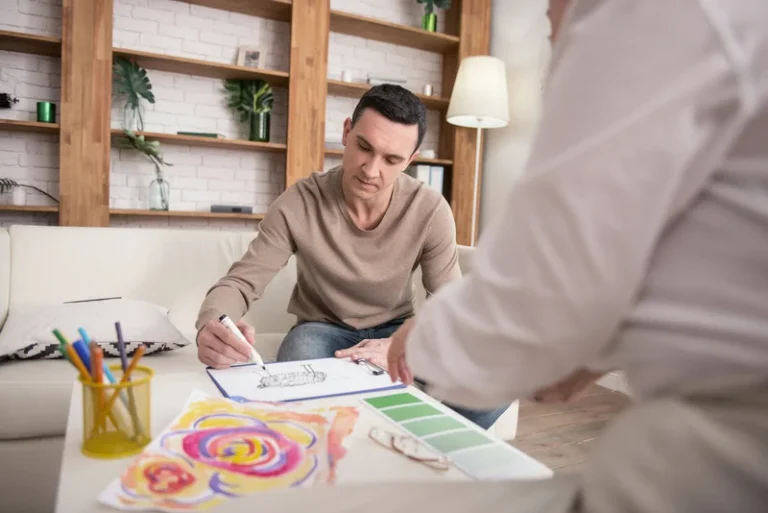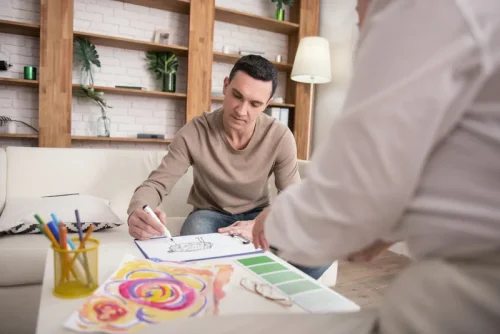
Long-term alcohol consumption has profound effects on brain health, impacting not just neurotransmitter function but also the physical structure of the brain. These changes significantly contribute to the co-occurrence of alcoholism and depression, making recovery more challenging. Chronic alcohol use can damage critical areas of the brain that govern decision-making, emotional regulation, memory, and overall mental health. Alcohol overstimulates dopamine pathways, creating short-term euphoria but over time depleting this system, which contributes to feelings of anhedonia and depression. Simultaneously, the brain’s attempts to compensate for alcohol’s sedative effects on the GABA system can make it hypersensitive to stress during withdrawal, further increasing depressive symptoms.

Alcoholics anonymous (AA) and alcohol treatment does drinking make your depression worse centers offer classes and support group meetings. In these, you can also find support from others in the same situation. However, for the best results, your doctor will likely treat them together. Drinking can seem like an easy way to cope with difficult emotions in the moment, but it’s generally not effective in the long run. Taking action to manage negative emotions as you experience them can help keep them from getting too overwhelming.
One of the most important things to understand about depression and alcohol is that drinking can actually worsen symptoms and increase the frequency and severity of depressed moods. Alcohol can trigger a relapse when you otherwise have depression under control. Whether you take antidepressants or not, drinking alcohol is a poor coping mechanism that only causes more harm. In contrast, some people with depression experience hypersomnia, which is when they oversleep and feel excessively tired during the day. A 2016 study found hypersomnia can make depressive symptoms worse and can cause treatment resistance.

One potentially helpful way to address and manage depressive symptoms is to identify what factors could potentially be making your depressive symptoms worse, and then begin making small lifestyle changes. If you’re depressed, you may be inclined to drink and the more you drink, the worse your symptoms may get, according to a 2019 study. While it may be best to seek help, lifestyle changes can Alcoholics Anonymous also make a major difference when it comes to alleviating symptoms. Learning what’s contributing to your depression is the first step to healing. Then, you can take action towards improving your mental health, whatever that may look like for you.
Alcohol consumption can lead to feelings of depression due to chemical reactions. In the short term, drinking alcohol can make you feel good, sociable, and even euphoric. However, alcohol can make these feelings and other symptoms worse over time, perpetuating the cycle of alcohol consumption and depression. Though depression is experienced by many, it can often go undiagnosed and untreated. You don’t have to battle the depression alone and relying on alcohol to make you feel better will only cause further pain.
If you already feel a little low, giving yourself a hard time for overdoing the alcohol probably won’t improve matters. If you tend to rely on alcohol to ease anxiety in social situations, for example, you might never address the underlying causes of your discomfort. As a result, any troubles you’re facing, from work stress to relationship issues, may get worse. Maybe you tossed and turned, had bizarre dreams, or woke up with your heart racing. In small to moderate amounts, alcohol can temporarily lift your spirits and help improve your mood. “One of the biggest challenges in dealing with depression is the stigmatization caused by a false understanding of the illness,” says Hegerl.

People who have problems with alcohol are also more likely to self-harm and commit suicide. In some people, the initial reaction may feel like an increase in energy. But as you continue to drink, you become drowsy and have less control over your actions. In addition, your doctor may prescribe medicines that are meant to lower alcohol cravings, which can reduce your desire to drink.
People with depression may use alcohol as a form of self-medication. Drinking alcohol can become a coping mechanism to deal with feelings of hopelessness, numbness, guilt, and worthlessness. If you have alcohol dependence, it can be unsafe to suddenly stop drinking. Talk to your doctor and work out a plan to safely lower your alcohol consumption.

If you drink and develop an addiction, it will become more difficult to control symptoms of depression, reduce the frequency of episodes, and stop or moderate drinking. You may need more frequent and long-term treatment if you have both an alcohol use disorder and depression. Recognition of the strong association between psychiatric and substance use disorders has led to the development of innovative interventions for dually diagnosed patients. Specifically, a growing body of research supports the use of motivational interventions for addressing substance use problems among patients with comorbid psychiatric and substance use disorders. Psychiatric treatment attendance is strongly related to clinical outcomes (e.g., Green & Pope, 2000). Our brains rely on a delicate balance of chemicals https://ecosoberhouse.com/ and processes to function well.

“I couldn’t justify running from my depression and anxiety anymore,” he says. Once she began feeling pangs of shame while drinking heavily after work, she decided to go back to AA. Kitley continues to use this fellowship as a resource while working on her sobriety. As a licensed therapist, Kitley knew the signs of depression and substance abuse — in fact, she attended an Alcoholics Anonymous (AA) meeting as part of her required grad school training.